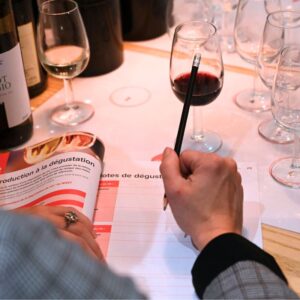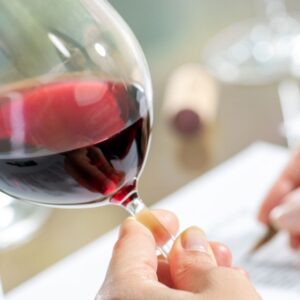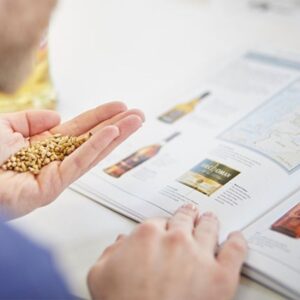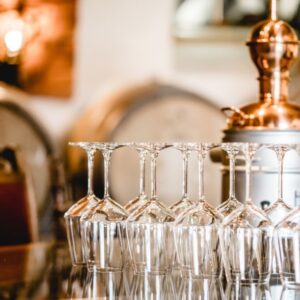The Master of Wine (MW) title is widely recognized as the pinnacle of expertise in the wine world. Earning this prestigious qualification means joining the international elite of professionals capable of mastering every aspect of viticulture, winemaking, tasting, and wine logistics and commerce.
Today, fewer than 500 Masters of Wine (exactly 418, based in 29 countries) are active worldwide—a number that highlights both the rarity and prestige of this distinction. Among them, the proportion of non-English-speaking professionals is extremely limited, especially compared to British or American Masters of Wine. This uniqueness further enhances the value of the title for those looking to stand out on the international stage.
In France, the fact to become a Master of Wine is a particularly esteemed achievement, showcasing both technical competence and professional credibility. For wine enthusiasts, this title represents much more than a diploma: it is a true passport to the most prestigious positions in wine commerce, education, and criticism worldwide.
So, what if you were the next to become a Master of Wine and join this circle of exceptional wine experts?

1. What is a Master of Wine?
The Master of Wine title is awarded by the Institute of Masters of Wine (IMW), an institution founded in 1955 in the United Kingdom. The IMW’s mission is to promote excellence and expertise in the wine world through rigorous training programs, demanding examinations, and the development of an international network of professionals. You can learn more directly on the official Institute of Masters of Wine website.
Unlike other prestigious wine qualifications, the Master of Wine stands out for its comprehensive and highly in-depth approach:
- Sommelier: focused on restaurant service, food and wine pairing, and customer experience.
- Master Sommelier (MS): a title specialized in service, sommellerie, and wine knowledge, with a strong practical and sensory focus.
- WSET Diploma: an international academic certification covering theory, tasting, and general knowledge of wine and spirits, but without the level of analysis, research, and networking offered by the MW.
The Master of Wine title provides immediate international credibility, opening doors to career opportunities in wine commerce, production, criticism, or education. Beyond technical expertise, it grants access to a unique global network of professionals and experts—a strategic advantage for anyone seeking to advance on the international stage.
In short, becoming a Master of Wine means reaching a rare level of recognition and competence, which goes far beyond simple wine knowledge to encompass analytical, strategic, and global aspects of the industry.

2. Requirements to apply and become a Master of Wine
Applying for the Master of Wine program is not for everyone. It requires candidates to demonstrate high academic and professional standards, along with an excellent command of English.
Here are the main prerequisites:
2.1 WSET Diploma or equivalent
To be eligible to become a Master of Wine, candidates must hold the WSET Diploma (or a recognized equivalent qualification). Before reaching this level, the WSET Level 3 in Wines is an essential step to build a solid foundation of technical knowledge. These certifications provide not only in-depth expertise but also the credibility needed to pursue the MW title.
Discover our WSET courses, tailored to each level, here: Weeno WSET Courses.
2.2 Strong professional experience
The Master of Wine emphasizes practical experience in the wine industry.
Whether your background is in production, commerce, sommellerie, or education, your career must demonstrate broad and concrete expertise in the sector.
This experience is crucial for succeeding in the MW’s theoretical and practical examinations, which require applying your knowledge in real-world, analytical situations.
2.3 English proficiency
Since the program is conducted entirely in English, a high level of language proficiency is essential. This includes the ability to understand and write technical reports, analyze market studies, and present tastings professionally.
To prepare effectively, Weeno offers specialized wine English courses in collaboration with CLOE and LTE, helping candidates develop technical vocabulary and confidence in speaking and writing. These courses are CPF-financeable and lead to a lifelong valid English certificate, based on WSET’s official English training manuals.
Discover our professional English programs here:
- Wine English with CLOE → obtain a certificate in wine and spirits English.
- Intensive English with LTE → obtain a globally recognized complete English certificate.
In short, a recognized diploma, solid professional experience, and business-level English form the essential foundation for embarking on this prestigious journey. These prerequisites ensure that every candidate is fully prepared to meet the demanding challenge it takes to become a Master of Wine.
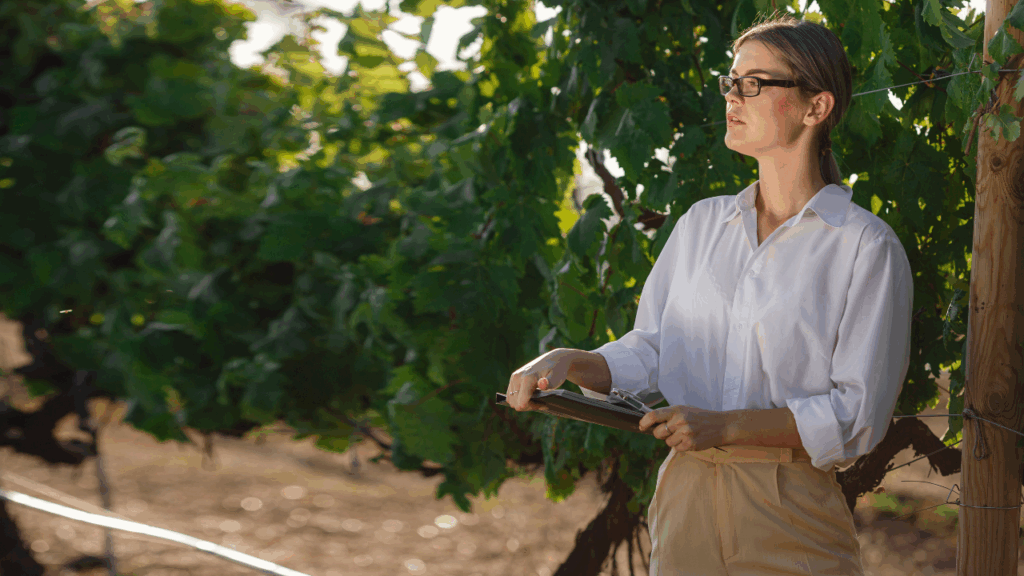
3. The steps to become a Master of Wine
The journey to become a Master of Wine is rigorous and demanding. It consists of four main stages, each designed to test your theoretical and practical skills, critical analysis, and ability to apply knowledge in real-world situations.
Step 1: Admission and entry assessment
The first step is to submit your application to the program. The Institute of Masters of Wine (IMW) reviews your academic and professional background to ensure you meet the prerequisites. This phase includes knowledge tests and an interview to determine your readiness for the demanding MW program.
For more information on the entry exams, you can consult the official page here.
Step 2: Stage 1 – Practical and theoretical examinations
Once admitted, candidates begin Stage 1, which covers the fundamentals of tasting, viticulture, winemaking, logistics, and wine commerce.
This stage includes 4 days of courses and a seminar to prepare for the theoretical and practical exams, evaluating your understanding of concepts and your ability to professionally assess and analyze wines.
Step 3: Stage 2 – Advanced examinations
Stage 2 deepens your knowledge and skills. The exams at this stage are more complex and require detailed critical analysis, technical essay writing (3 essays per specialty: viticulture, winemaking, logistics, commerce & marketing, and contemporary topics), and blind wine tasting (36 wines: 12 whites, 12 reds, and 12 diverse wines).
For the official 2025 exam topics, you can consult the page here.
Step 4: Final dissertation (research paper)
The final step is the Research Paper, an original research project on a wine-related topic of your choice. This dissertation must demonstrate your ability to conduct an in-depth study, analyze data, and provide insights relevant to the wine industry. It represents the culmination of the program and is the final requirement to earn the title of Master of Wine.
On average, candidates take 5 to 7 years to complete all four stages of the program and achieve the MW designation.

4. Difficulty and success rate
To become a Master of Wine is a major challenge that demands rigor, perseverance, and full commitment. The program is extremely selective: less than 10% of candidates succeed in earning the title, highlighting both the high standards and prestige of the MW qualification.
A considerable workload
The journey requires intensive preparation, estimated at 5,000 to 6,000 hours of study and practice.
This workload includes:
- Daily and comparative wine tasting,
- Consolidating theoretical knowledge in viticulture, oenology, and wine commerce,
- Writing and critical analysis for exams and the Research Paper.
The importance of a support network
To successfully navigate this demanding path, a strong support network is essential:
- Experienced mentors, often Masters of Wine themselves, to provide guidance,
- Tasting groups for discussion, feedback, and skill development,
- Study trips to gain international exposure and deepen understanding of terroirs.
A significant financial and personal investment
The total cost includes not only tuition fees but also time commitment, travel expenses for seminars and study trips, and the practical experiences required to prepare for the exams. Although considerable, this investment is proportional to the prestige and opportunities offered by the MW title.
Becoming a Master of Wine is therefore not only a matter of skill but also of discipline, strategy, and perseverance, requiring several years of comprehensive preparation.
On average, the overall budget ranges from €25,000 to €50,000, depending on exam success and travel expenses.
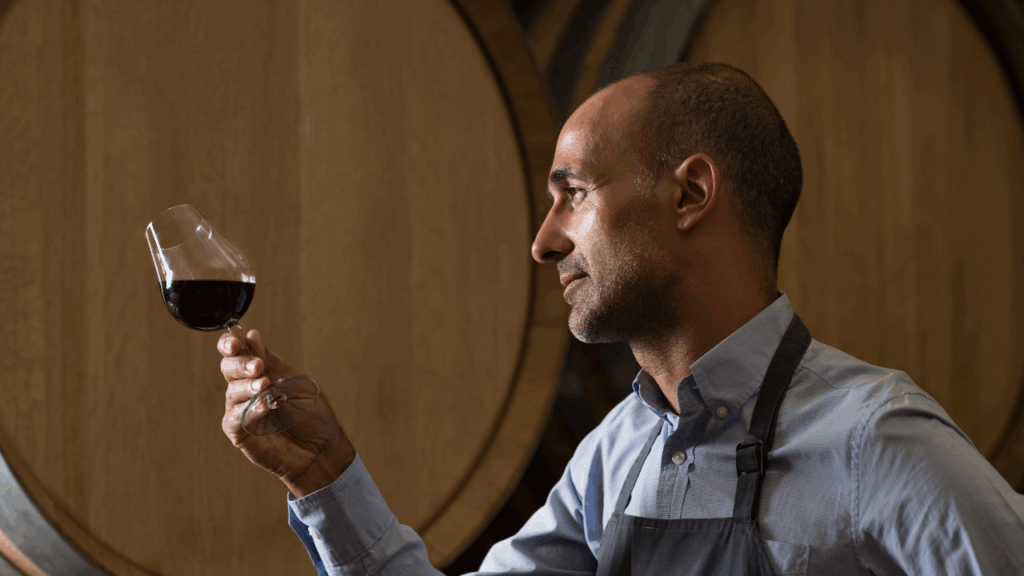
5. The benefits of becoming a Master of Wine
Earning the Master of Wine (MW) title is not just about recognizing exceptional expertise – it is also a powerful career and influence lever in the wine industry.
A unique network
Masters of Wine form an exclusive international community of experts, producers, merchants, and renowned educators. Being part of this network allows you to collaborate with top professionals, exchange advanced practices, and stay up to date with trends and innovations in the industry.
International recognition
The MW title is globally recognized as the pinnacle of wine expertise. It provides instant credibility with employers, clients, and peers, whether in production, distribution, or education.
Diverse career opportunities
Masters of Wine hold high-responsibility positions or create their own projects, including:
- Consulting: advising producers, merchants, or international brands.
- Commerce: managing exports, market development, and brand representation worldwide.
- Education: training professionals or advanced enthusiasts, creating specialized content.
- Critique & Media: writing publications, specialized journals, podcasts, or speaking at conferences.
- Production: actively participating in winemaking and developing high-end wines.
Examples of Masters of Wine in France
- Édouard Baijot MW: former sommelier and consultant, sharing expertise through training, consulting, and collaborations with prestigious houses.
- Jeremy Cukierman MW: active in consulting and education, contributing to the dissemination of oenological knowledge in France and internationally.
These examples demonstrate that when you become a Master of Wine, this title opens doors to diverse and prestigious careers, allowing professionals to combine passion, expertise, and influence in the wine sector.

6. Experience insight: Vanessa, CEO of Weeno
The Master of Wine journey is not just about acquiring knowledge – it is also an exceptional human and professional experience, as illustrated by Vanessa Guebels, CEO of Weeno.
An international network and enriching seminars
Vanessa had the opportunity to attend seminars in Rust and Seattle, as well as several Day Courses in London, allowing her to meet and exchange with professionals from around the world, participate in high-level conferences, and taste exceptional wines.
These experiences provide insight into international practices and enable the creation of a unique professional network, essential for anyone aiming to advance in the wine industry.
Continuous knowledge development
Beyond networking, the MW program offers the chance to push intellectual and technical limits. Vanessa emphasizes the importance of developing habits to keep learning and staying informed, a critical skill for any trainer or expert who wants to remain at the top of their field.
A significant time commitment
However, Vanessa stresses that the MW program requires full dedication: candidates must be able to commit 100% of their time, without major professional or personal constraints, to fully benefit from the experience.
For more insights on Vanessa’s journey and her experience with the MW program, you can read her full article here.
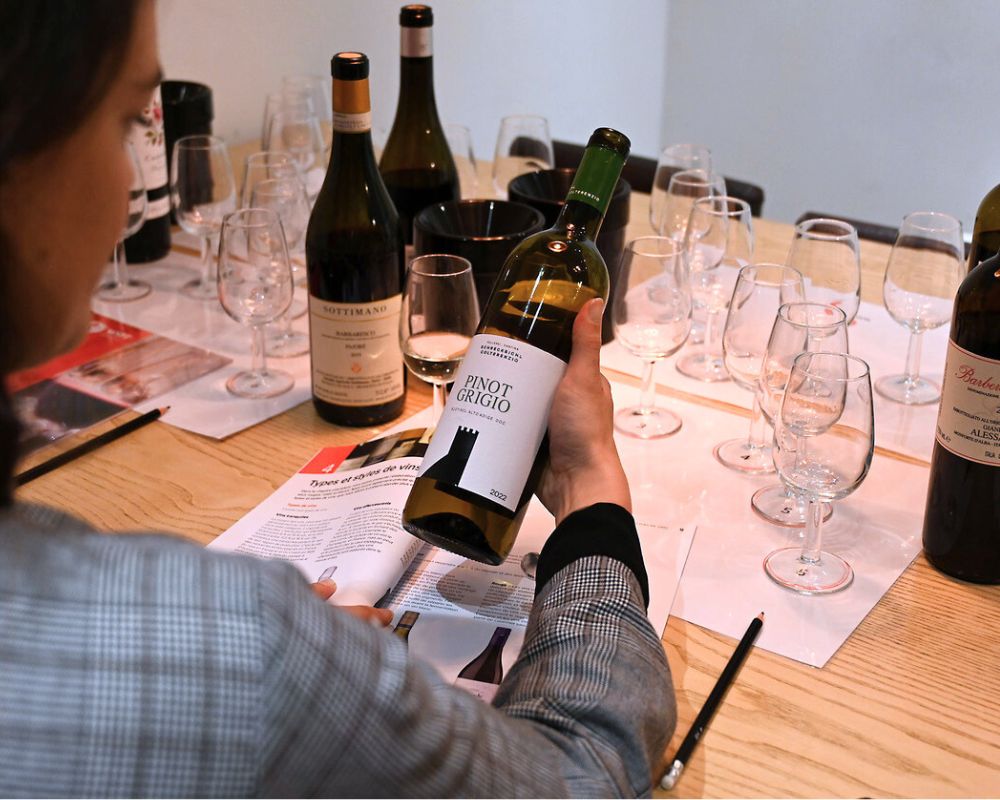
Becoming a Master of Wine is an inspiring dream, but it requires above all rigor, commitment, and passion.
This unique journey combines technical expertise, international exposure, and an unparalleled professional network, yet it demands a significant investment of time and energy.
The good news?
You can start today with accessible steps: WSET Levels 1 to 3, followed by the WSET Diploma, form the first stepping stones to build your expertise and prepare for the prestige to become a Master of Wine.
➡️ Discover Weeno’s training programs (WSET and English courses) and start paving your way to the top of the wine world: weenodrinksacademy.com/formations-wset

